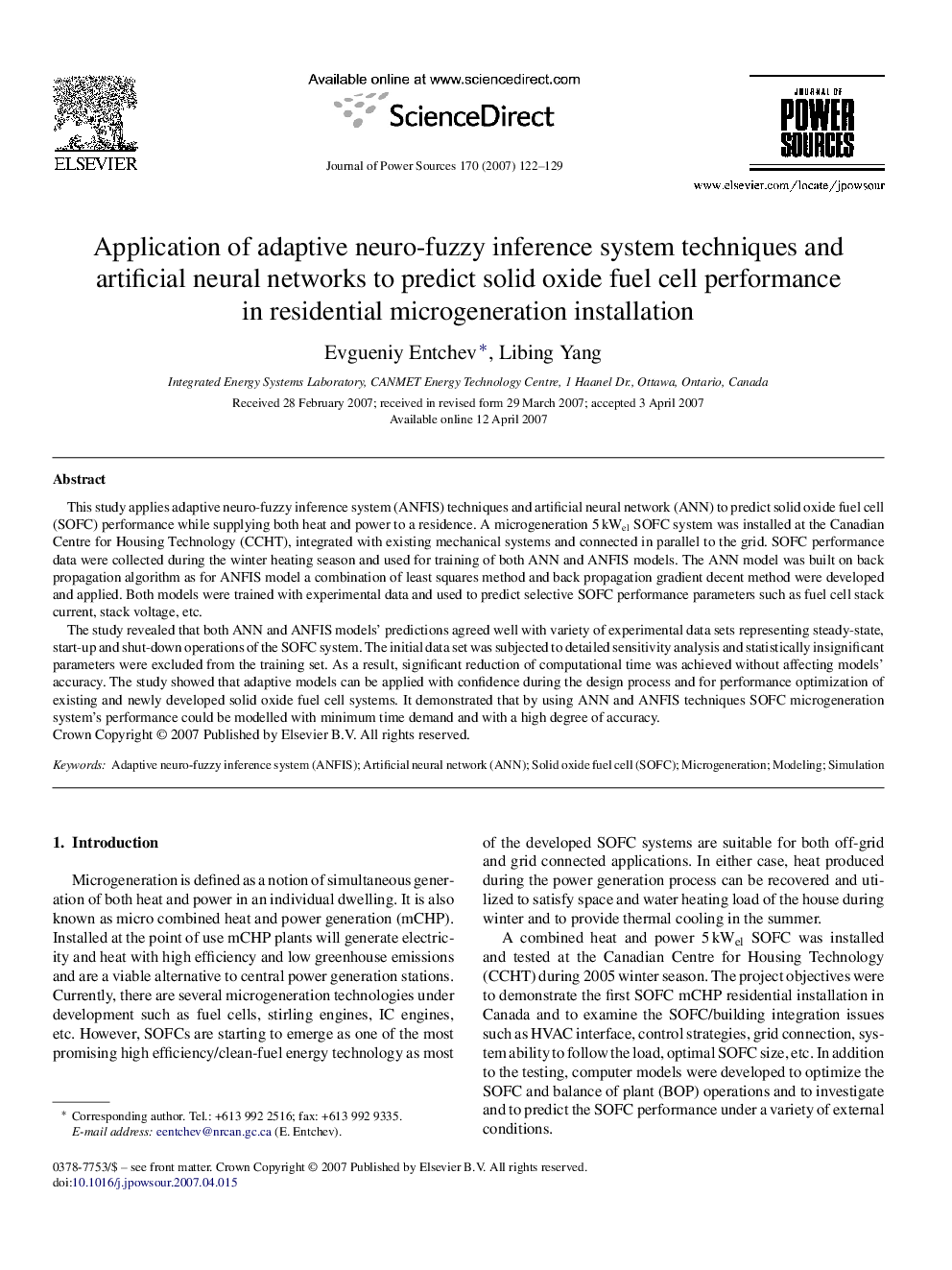| Article ID | Journal | Published Year | Pages | File Type |
|---|---|---|---|---|
| 1291380 | Journal of Power Sources | 2007 | 8 Pages |
This study applies adaptive neuro-fuzzy inference system (ANFIS) techniques and artificial neural network (ANN) to predict solid oxide fuel cell (SOFC) performance while supplying both heat and power to a residence. A microgeneration 5 kWel SOFC system was installed at the Canadian Centre for Housing Technology (CCHT), integrated with existing mechanical systems and connected in parallel to the grid. SOFC performance data were collected during the winter heating season and used for training of both ANN and ANFIS models. The ANN model was built on back propagation algorithm as for ANFIS model a combination of least squares method and back propagation gradient decent method were developed and applied. Both models were trained with experimental data and used to predict selective SOFC performance parameters such as fuel cell stack current, stack voltage, etc.The study revealed that both ANN and ANFIS models’ predictions agreed well with variety of experimental data sets representing steady-state, start-up and shut-down operations of the SOFC system. The initial data set was subjected to detailed sensitivity analysis and statistically insignificant parameters were excluded from the training set. As a result, significant reduction of computational time was achieved without affecting models’ accuracy. The study showed that adaptive models can be applied with confidence during the design process and for performance optimization of existing and newly developed solid oxide fuel cell systems. It demonstrated that by using ANN and ANFIS techniques SOFC microgeneration system's performance could be modelled with minimum time demand and with a high degree of accuracy.
